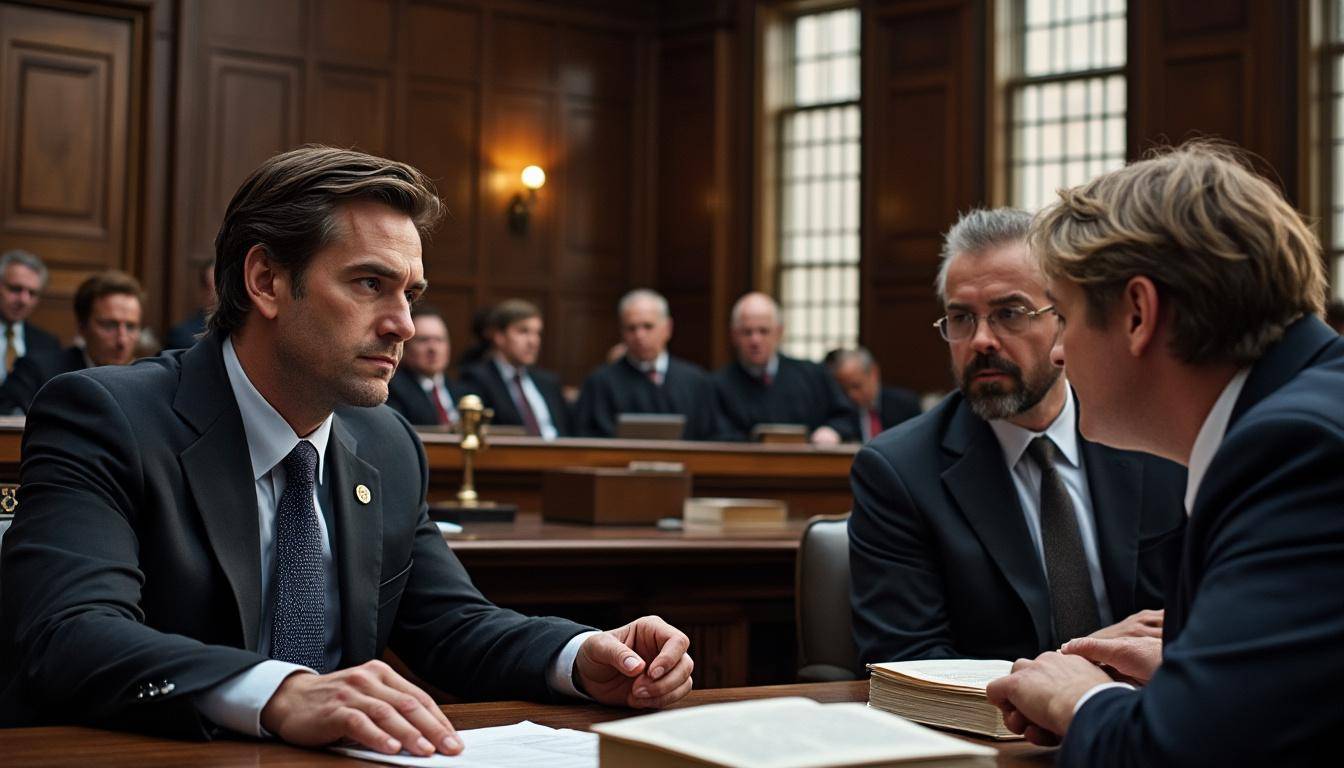The United States Supreme Court’s recent 5-4 decision allowing a truck driver to pursue triple damages under the Racketeer Influenced and Corrupt Organizations Act (RICO) despite the alleged harm being related to personal injury has stirred considerable debate among legal experts. This landmark ruling challenges previous precedents that barred RICO claims when the business or property loss derived from a personal injury, opening new avenues—and potential complications—for litigation involving personal injury intertwined with economic damages.
Supreme Court’s Key Decision on RICO and Personal Injury Litigation
In the case of Douglas Horn, a truck driver dismissed after testing positive for THC from a cannabidiol (CBD) product reportedly free of marijuana’s psychoactive properties, the Supreme Court recognized his right to seek compensation under RICO for damages to his livelihood. Horn accused Medical Marijuana Inc. of engaging in fraud through misleading marketing and sales of the supplement Dixie X, which contained THC. The Court rejected the “antecedent-personal-injury bar” that prohibited RICO suits for business losses linked to personal injury, thus expanding the scope of civil RICO claims.
- RICO’s provision allows suits for any business or property injury.
- The Court clarified that business damages can be recovered even if they originate from personal injury.
- This challenges certain federal appeals courts’ prior rulings that barred such claims.
This ruling, detailed in official legal analyses, marks a significant shift in case law, especially for litigants in personal injury suits seeking expanded financial remedies.
Legal Precedents and the Dissenting Perspective on Potential Complications
Justice Amy Coney Barrett authored the majority opinion, joined by Justices Sotomayor, Kagan, Gorsuch, and Ketanji Brown Jackson, emphasizing that the existing statutory language supports recovery for business loss even when tied to personal injury. However, dissenting voices caution on the aftermath of this decision.
Justice Brett Kavanaugh, joined by Chief Justice Roberts and Justice Alito, warned in his dissent that the ruling could lead to:
- Complex litigation as courts struggle to define which losses qualify as business or property damages in personal injury contexts.
- Flooding of federal courts with traditional personal injury claims masquerading as RICO cases, potentially overwhelming judicial resources.
- Insurance and recovery issues, complicating claims handling and litigation strategy for accident victims.
Justice Clarence Thomas additionally dissented on procedural grounds, highlighting concerns about the clarity of Horn’s personal injury claim and statutory interpretation.
For detailed analysis of these divergent opinions, refer to this comprehensive review.
Implications for Personal Injury Attorneys and Claimants Post-Ruling
This Supreme Court ruling establishes a new legal precedent that personal injury victims might leverage to claim damages under RICO, especially when there are overlapping economic harms. Legal practitioners handling injury and insurance cases should carefully assess:
- Whether business or property damages linked to personal injury are present, ensuring claims fit the expanded RICO scope.
- Potential increase in litigation volume, requiring strategic case management to navigate complex claims.
- Risks of protracted disputes, including appeals and challenges on the definition of “business injury.”
For those interested in the nuanced effects on personal injury and RICO claims, further discussion can be found at this in-depth article.
Case Law and Insurance Considerations Moving Forward
This decision triggers a notable shift in case law, compelling insurance providers to revisit policy coverage and exposure in personal injury-litigation intertwined with RICO allegations. Key factors to consider include:
- Rising premiums and coverage disputes as insurers confront a broader claim base and potential for treble damages.
- Litigation funding complexities, with plaintiffs increasingly pursuing civil RICO claims that require specialized legal resources.
- Adjustment in defense strategies, particularly for companies accused of deceptive or fraudulent practices contributing to personal injuries.
Legal professionals can find relevant updates on insurance implications here: RICO accountability and economic damages insights.
The Supreme Court’s ruling in Medical Marijuana Inc. v. Horn exemplifies how evolving interpretations of federal statutes can substantially affect personal injury and business-related litigation.
Guidance for Individuals Facing Personal Injury and Complex Litigation
If you or a loved one have suffered injuries resulting from third-party negligence or misrepresented products, understanding the evolving legal landscape is crucial. Consider the following steps:
- Consult a qualified personal injury attorney, especially one familiar with recent rulings on RICO claims.
- Document all business and personal losses meticulously, including employment impacts and emotional distress.
- Prepare for potentially lengthy litigation, factoring in the complexities introduced by overlapping injury and economic damage claims.
- Explore insurance policies and coverage options, as insurers adapt to the shifting legal risk environment.
Additional resources and case studies detailing personal injury claims linked to RICO litigation are available at this legal resource page.
Frequently Asked Questions on RICO and Personal Injury Litigation
- Q: What does the Supreme Court ruling mean for future personal injury claims under RICO?
A: It widens eligibility, allowing plaintiffs to pursue triple damages for business or property harm even when linked to personal injury. - Q: How might this affect the number of lawsuits filed?
A: There may be an increase in filings as plaintiffs explore RICO claims for economic damages related to personal injuries. - Q: Are all personal injury-related business losses covered under this ruling?
A: The ruling leaves room for interpretation; courts will determine which losses qualify as business or property damages. - Q: What challenges do defendants face after this decision?
A: Defendants face more complex claims that blend personal injury and business damages, requiring nuanced defense strategies.
